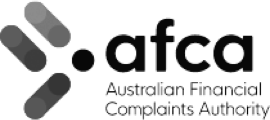Year end. Arguably, it’s the time of year you least like running your own business, but it’s also a time to capitalise on the tax incentives the Government is throwing your way! Read on for our top tips to get you through June 30th with minimum stress
Maintain Your Expense Records
If you’re not already doing it, then set aside some time to categorise all your expenses. Nicholas Pateras from Wilson Pateras Accountants says, “ To maximise your deductions it’s imperative to keep good records, especially with Motor Vehicle claims where maintaining a full log-book is essential”.

Other categories can include:
- Marketing: Advertising, PR, directories, business cards, printing, domain hosting
- Entertainment: Staff/Client gifts and meals
- Office expenses such as stationary, postage, utilities
- Accounting and legal fees
- Salaries, wages
- Travel
- Telephone and internet
- Donations to charity
The technology that now exists to manage your records is great. It will save a great deal of time in the log run to use an on-line app such as MYOB or Xero that let you upload photographs of receipts to be categorised and filed automatically so you never have to think of them again!
2) Consider your investments
“What you invest in will be one of the largest factors in determining your tax bill. For instance, ‘tax advantaged’ investments such as shares and property, may actually reduce your tax bills if structured correctly”, says Nicholas.
3) Asset write off
The $20,000 instant asset write-off scheme means instead of claiming deductions bit by bit, you can deduct the full value of every asset purchased to the value of $20,000. Important to note for next year, the threshold has jumped up to businesses turning over up $10 million from July 1 2016. You’ll have to get in quick though; this scheme is set to expire on June 30, 2017.
4) Inventory
You can choose how you value inventory to minimise tax to either bring forward deductions or move values into the following year. Stock can be valued at cost, market value or obsolete stock value. If you have obsolete stock, it should be written off fully.
5) Interest is deductible
Don’t forget that interest paid on borrowed funds such as overdraft, credit cards and loans for business use can be claimed. Importantly, now is the time of year to consider if you should be prepaying any interest in advance as this is a tax deduction as well.
6) Super Really is Super
“ It’s often the forgotten asset, but super is still great from a tax perspective with the lowest tax rate on earnings by a long way”, says Nicholas. This year there is an increase in the concessional contribution limit , from $25,000 to $30,000. Maximising super contributions will provide significant savings with the tax rate set at 15%. If you have a Self Managed Super Fund, this provides a great opportunity to maximise tax savings by contributing up to 3 years in one go at a maximum of $180,000p.a.
7) Bad Debts
June 30th provides an opportunity to write off any bad debts from the current financial year. You must do this before the end of June, not after, irrespective of when you complete your return. You’ll need have documentation to support the write off including measures made to recover bad debts.
But as is the case with many measures to minimise your tax bill, make sure to document what the debts are and the efforts you have made to recover them.If your business is cash based, it’s not as easy to write off bad debts as they won’t have previously been included as income.
8) Review Your Structure
“Too often clients visit us to discuss the structure of their business when they are ready to prepare their returns; but it is all too late” says Nicholas, “The review whether you should trade your business as company or trust should be done before 30 June”
9) Use an Accountant
It’s tempting to try and save a few dollars and do it all yourself, but using a professional will almost always save you money. The more organised your records are when you submit them, the less time your accountant will need to spend on them. An accountant knows the ins and out of the tax system and will maximise your savings every time, most certainly keeping all your hair intact!


